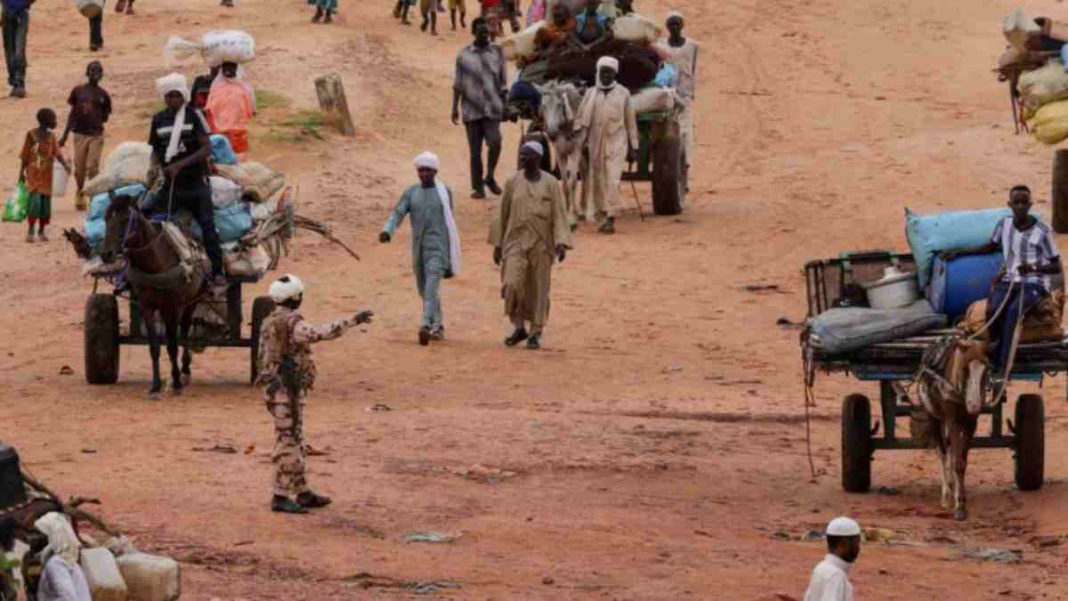SUDAN: The United Nations sounded an alarm on Tuesday, highlighting that more than a million individuals have sought refuge in neighboring countries as Sudan grapples with severe shortages of food and medical supplies.
The dire situation has led to casualties stemming from a persistent conflict that has endured for four months.
A conflict between the Sudanese army and the paramilitary Rapid Support Forces (RSF) has caused havoc in Khartoum, the nation’s capital, and incited racial attacks in Darfur, exacerbating the long-standing civil war and regional instability.
“Farmers are running out of time to plant crops necessary for sustenance. Medical supplies remain scarce. The situation is rapidly deteriorating,” stated U.N. agencies in a joint statement.
Malik Agar, the deputy head of the Sovereign Council, suggested a potential shift in the army’s stance, saying, “Ultimately, this war will conclude at a negotiation table.” He underscored the hardships borne by the population.
The conflict has resulted in 1,017,449 individuals seeking refuge in nearby countries, further burdening regions already grappling with conflicts and economic challenges.
Additionally, within Sudan, approximately 3,433,025 people have been displaced internally, according to the latest weekly data from the IOM.
The conflict erupted on April 15 due to tensions surrounding a planned transition to civilian rule. As a result, residents of Khartoum and surrounding areas have been subjected to daily clashes and assaults.
The millions who remain in Khartoum and other cities in the Darfur and Kordofan regions confront rampant theft, prolonged power outages, communication disruptions, and water shortages.
Elizabeth Throssell, spokeswoman for the High Commissioner for Human Rights, noted during a briefing in Geneva that “the bodies of many of those who lost their lives have not been recovered, identified, or laid to rest,” although the U.N. estimates the death toll to exceed 4,000 individuals.
Laila Baker, a UN population fund official, reported a 50% surge in reports of sexual assaults.
The ongoing widespread electricity blackout, in effect since Sunday, has also disrupted mobile networks, according to the national electricity authority.
Given the circumstances, Agar proposed the establishment of an interim government to provide essential services and oversee reconstruction efforts.
The U.N. estimated that seasonal rains, intensifying the risk of water-borne diseases, have affected around 13,500 individuals by damaging or destroying their homes.
General Abdel Fattah al-Burhan, the army’s head, accused the RSF on Monday of “committing a range of unimaginable crimes” and seeking to “reverse the country to a pre-modern state era.”
The RSF alleged that the army, with support from Omar al-Bashir’s loyalists who ousted him in a 2019 uprising, is attempting to seize complete control.
Efforts led by the United States and Saudi Arabia to mediate a ceasefire have stalled, while humanitarian organizations struggle to provide aid due to security concerns, looting, and administrative obstacles.
Also Read: United Nations Passes Historic Climate Justice Resolution



